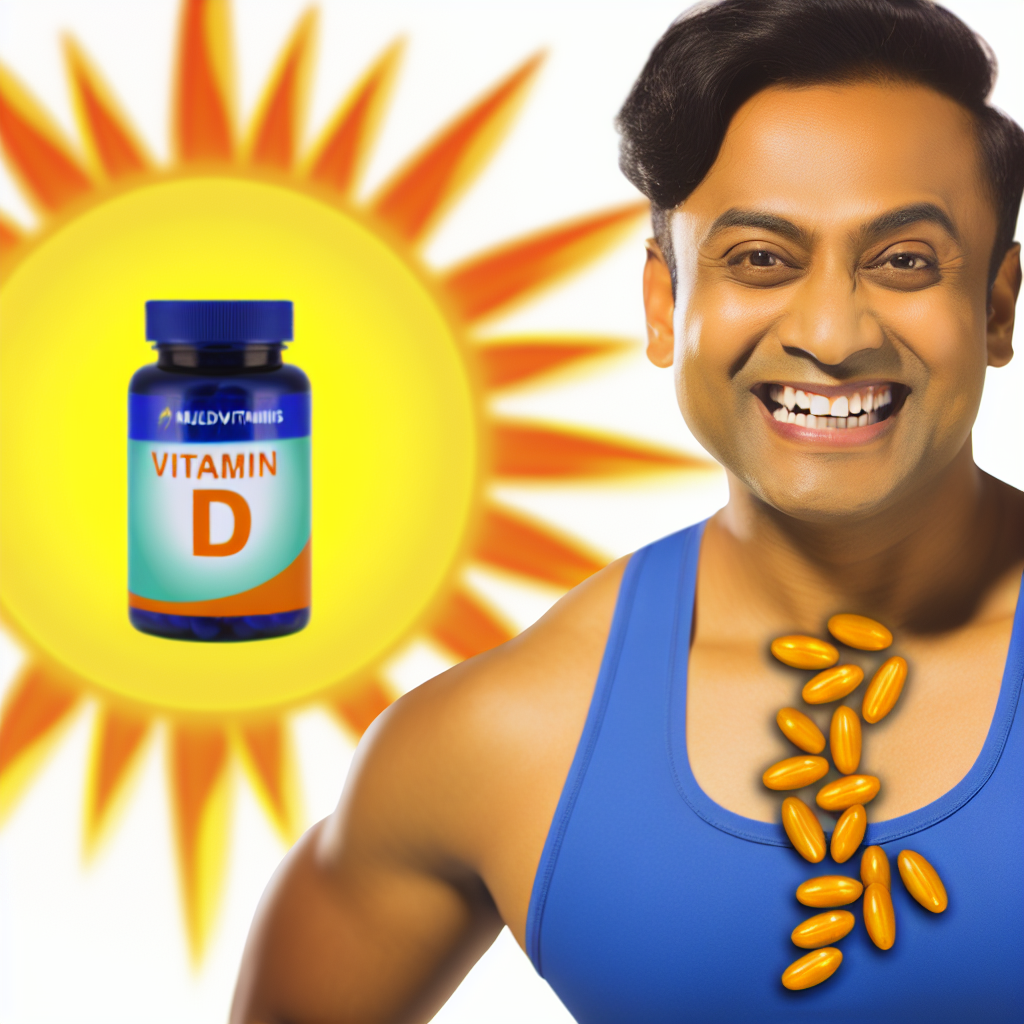Have you ever felt stuck in a cycle of fatigue, wondering if there’s a way to recharge your batteries? You’re not alone. Vitamin D, widely recognized as the "sunshine vitamin," has become a popular topic among those searching for ways to improve their energy levels and overall health. Known for its role in supporting bone health and immunity, vitamin D may also have a connection to energy production.
But can it actually give you that much-needed boost? In this article, we’ll unpack the science behind vitamin D’s role in energy, explore signs of deficiency, and share practical tips to naturally increase your levels. Whether you’re battling fatigue or curious about optimizing your health, understanding vitamin D could be the missing piece.
What Is Vitamin D and Why Does It Matter?
Vitamin D isn’t just any nutrient—it’s essential for keeping your body’s systems functioning smoothly. Your body naturally produces it when your skin is exposed to sunlight, which is why it’s called the "sunshine vitamin." But its importance goes far beyond sunny days. Vitamin D is vital for regulating calcium and phosphorus levels, supporting bone health, strengthening your immune system, and even aiding in energy production.
Think of your body like a factory full of machines, each responsible for a specific job. Vitamin D keeps those machines—especially the mitochondria, the energy powerhouses of your cells—working efficiently. When you don’t have enough vitamin D, the factory starts slowing down, and you may find yourself feeling tired and sluggish.
How Does Vitamin D Affect Energy Levels?
Can Vitamin D Help Boost Energy Directly?
Unlike caffeine or energy drinks, vitamin D doesn’t provide an instant jolt of energy. Instead, it operates behind the scenes to improve the systems responsible for energy production. Mitochondria depend on vitamin D to generate energy effectively within your cells, and low levels can impair this process.
Research has shown that vitamin D deficiency is linked to chronic fatigue, with many individuals noticing significant improvements in energy levels once they restore their vitamin D levels through treatment. While vitamin D may not offer instant vitality, maintaining healthy levels can help your body feel less taxed and more efficient over time.
Signs of Low Energy Linked to Vitamin D Deficiency
If tiredness has become your norm, it’s time to consider that vitamin D deficiency might be playing a role. Here are some common signs:
- Persistent fatigue or sluggishness, even with adequate sleep
- Trouble focusing or experiencing brain fog
- Muscle weakness and difficulty recovering after exercise
- Frequent illnesses or a weakened immune system
- Mood swings or feelings of low motivation
If these symptoms sound familiar, getting your vitamin D levels checked could be a crucial step toward feeling better. Many people find their energy dramatically improves once they address a deficiency—whether through lifestyle changes, diet, or supplements.
How to Boost Your Vitamin D Levels
Sunlight: Nature’s Energy Source
Spending time in the sun is the most natural way to boost vitamin D levels. Direct sunlight triggers your skin to produce vitamin D, and for many people, just 10–30 minutes of exposure a few times a week is enough. However, factors like skin tone, geographic location, and weather can influence how much sunlight you need.
If you live in a cloudy area or spend most of your time indoors (hello, desk jobs!), relying solely on sunlight might not work. In these cases, turning to dietary sources and supplements can help ensure you’re meeting your needs.
Eat Your Way to Better Vitamin D Levels
While sunlight is key, certain foods can also increase your vitamin D levels. Here are a few great options:
- Fatty fish: Salmon, mackerel, and sardines are rich in vitamin D and omega-3 fatty acids.
- Egg yolks: A small but mighty source of vitamin D—perfect for breakfast.
- Fortified dairy products: Many brands of milk, yogurt, and cheese are enriched with vitamin D.
- Mushrooms: Varieties exposed to sunlight (like UV-treated mushrooms) can contain decent levels of vitamin D.
Combining these dietary sources with sunlight exposure creates a balanced approach to meeting your vitamin D needs.
Considering Vitamin D Supplements
If you’ve been diagnosed with a deficiency, supplementation is often the most reliable way to raise your levels quickly. Vitamin D3 supplements are widely recommended because they closely mimic the form your body naturally produces. However, it’s important to use supplements responsibly under the guidance of a healthcare provider. Excessive vitamin D intake can lead to toxicity and cause symptoms like nausea, confusion, and kidney strain.
One of my colleagues noticed rapid improvements within weeks of starting a vitamin D supplement. Her energy, focus, and overall mood shifted for the better, allowing her to thrive in ways she hadn’t for months. If you’re struggling with fatigue, supplements might be worth discussing with your doctor.
Dispelling Misconceptions About Vitamin D
Myth: "Vitamin D Will Instantly Boost My Energy."
Vitamin D isn’t a stimulant—it works gradually to enhance your body’s efficiency, making you feel better over time. While restoring healthy levels can ease fatigue, don’t expect an immediate burst of energy like you would with caffeine!
Myth: "More Vitamin D Equals More Energy."
It’s easy to think megadoses will maximize benefits, but overloading on vitamin D can cause toxicity and harm your health. Stick to recommended daily amounts, typically 600–800 IU for most adults, unless your doctor advises otherwise.
Conclusion
So, can vitamin D give you energy? The simple answer is yes—but in a subtle and essential way. Vitamin D supports your body’s systems and energy production processes, helping reduce fatigue and enhance overall vitality. If you suspect you’re deficient, addressing your vitamin D levels through sunlight, food, or supplements may be a powerful first step.
Take proactive steps to get tested if needed and consult with your healthcare professional about the best plan for you. With the right approach, you may feel brighter, more energized, and ready to tackle each day with renewed strength.
